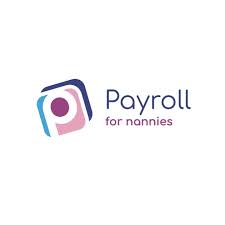| FURLOUGH 4.0 |
| Our partners at www.PayrollForNannies.co.uk provide payroll advice for parents and nannies and have provided this content. For more advice and support please get in touch with them. Rishi Sunak, the Chancellor of the Exchequer, announced a new raft of support measures connected to the continuing COVID-19 pandemic. This seems to be a response to the growing lock-down and complaints that the government was not doing enough to assist businesses and their employees. The Job Support Scheme When originally announced, the JSS – which will come into effect on 1 November – saw employers paying a third of their employees’ wages for hours not worked and required employees to be working 33% of their normal hours. This announcement reduces the employer contribution to those unworked hours to just 5%, and reduces the minimum hours requirements to 20%, so those working just one day a week will be eligible. Employers will pay their staff normally for hours they work. Then, they’ll be paid two-thirds of their pay for the remaining hours (with the employer covering 5% and the government paying 95%). So people will still see lower take-home pay – we have prepared the table below. Normal Hours JSS Hours Take home percentage of contracted hours 20% 80% 74% 25% 75% 75% 30% 70% 76% 33% 67% 77% 35% 65% 78% 40% 60% 80% 45% 55% 81% 50% 50% 83% 55% 45% 85% 60% 40% 86% 65% 35% 88% 70% 30% 90% 75% 25% 92% 80% 20% 93% 85% 15% 95% 90% 10% 97% 95% 5% 98% The maximum payment will be £1541.75 per month. The cap is set above median earnings for employees in August at a reference salary of £3,125 per month. The employer will be reimbursed in arrears for the government contribution. The relevant employee(s) must not be on a redundancy notice. The JSS is intended to protect viable jobs over next six months after the furlough scheme ends at the end of the month. All small and medium-sized firms with a UK PAYE scheme and UK bank account are eligible – but large firms are only eligible if their turnover has fallen in the pandemic and can document this. The JSS is open to firms who have not used the earlier CJRS scheme. That means that if someone was being paid £587 for their unworked hours, the government would be contributing £543 and their employer only £44. Employers will continue to be entitled to receive the £1,000 Job Retention Bonus: https://src-time.co.uk/the-job-retention-bonus-explained/ Self-Employment Income Support Scheme As part of the Winter Economy Plan, Rishi Sunak had announced an extension to the Self Employment Income Support Scheme (SEISS). There was to be a lump sum to cover November to January next year, worth 20 per cent of average monthly profits, capped at £1,875. There was also to be a second grant for February to April 2021of an unspecified value. Today’s announcement sets the amount of profits covered by the two forthcoming self-employed grants from 20 per cent to 40 per cent, meaning the maximum grant will increase from £1,875 to £3,750. Business Support Grants The Chancellor has also announced approved additional funding to support cash grants of up to £2,100 per month primarily for businesses in the hospitality, accommodation and leisure sector who may be adversely impacted by the restrictions in high-alert level areas. These grants will be available retrospectively for areas who have already been subject to restrictions and come on top of higher levels of additional business support for Local Authorities moving into Tier 3. Local Authorities (LAs) will be able to support businesses in high-alert level areas which are not legally closed, but which are severely impacted by the restrictions on socialising. The funding LAs will receive will be based on the number of hospitalities, hotel, B&B, and leisure businesses in their area. LAs will receive a funding amount that will be the equivalent of:For properties with a rateable value of £15,000 or under, grants of £934 per month.For properties with a rateable value of between £15,000-£51,000, grants of £1,400 per month.For properties with a rateable value of £51,000, grants of £2,100 per month.This is equivalent to 70% of the grant amounts given to legally closed businesses (worth up to £3,000/month). Local Authorities will also receive a 5% top up amount to these implied grant amounts to cover other businesses that might be affected by the local restrictions, but which do not neatly fit into these categories. It will be up to Local Authorities to determine which businesses are eligible for grant funding in their local areas, and what precise funding to allocate to each business – the above levels are an approximate guide. Businesses in Very High alert level areas will qualify for greater support whether closed (up to £3,000/month) or open. In the latter case support is being provided through business support packages provided to Local Authorities as they move into the alert level. SRC-Time are one of the South East’s leading accountancy firms in advising the self-employed and partnerships in all aspects of their tax affairs and we are able to assist in any issue raised above. |
Tag: PAYE
2019-2020 National Insurance Changes
Our recommended partners at www.PayrollForNannies.co.uk provide payroll advice for parents and have created this content.
Parents, as an employer of a nanny, you will need to pay HMRC employee and employer Class 1 National Insurance based on your nanny’s wage.
Employee national insurance is deducted from your nanny’s gross salary, whereas employer’s National Insurance is an additional cost on top of your nanny’s gross salary paid by you, the employer.


